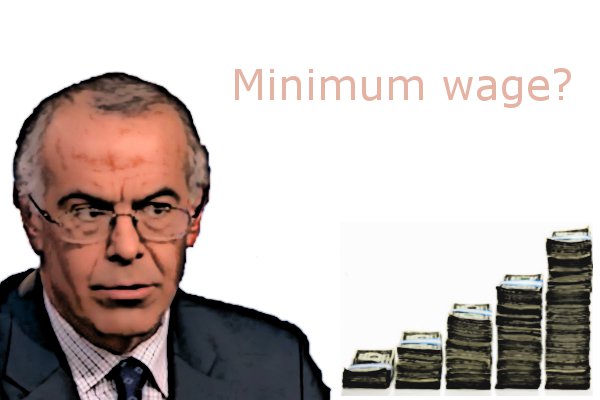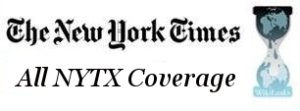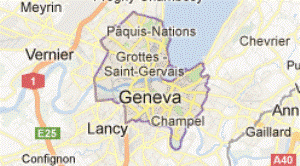BEAT THE PRESS (NYT) » BUSINESS » DAVID BROOKS
David Brooks Stumbles Over the Work Force in Attacking the Minimum Wage
February 25, 2014 · 0 Comments

Above: Graphic by NYT eXaminer.
By Dean Baker:
David Brooks doesn't like the idea of raising the minimum wage. But the good news is that he thinks it's a good idea to increase the Earned Income Tax Credit (EITC), an alternative mechanism for helping low-paid workers.
In criticizing President Obama's proposal for raising the minimum wage, Brooks refers to the Congressional Budget Office's (CBO) projection that it would lead to 500,000 fewer jobs, but doesn't get the story quite right:
"Democrats embrace a raise in the minimum wage that could drive another half-million workers out of the labor market."
Actually CBO projected that the higher minimum wage would lead to 500,000 fewer jobs, not drive 500,000 people out of the labor market. This isn't just nitpicking.
Some folks may recall CBO's analysis of the ACA. This concluded that the ACA would reduce the supply of labor by roughly 2 percent. That was a case where people would be leaving the labor force or reducing their supply of labor. The issue here was that the ACA made it possible to get health insurance outside of employment. This would mean that many near retirees or people in bad health might decide to quit their jobs or work fewer hours as a result. Many parents of young children may also decide to work fewer hours or take time off from work to be with their kids.
Opponents of the ACA jumped on the CBO analysis. Some wrongly claimed that CBO concluded the ACA will kill jobs. More informed critics decried the negative incentives for work created by the ACA. And this is partly true. The ACA provides substantial health care subsidies for low and moderate income workers that are phased out as income rises. This phase out is equivalent to a higher tax rate.
For example, if a $4,000 subsidy is phased out as income rises by $20,000, this is equivalent to a 20 percent marginal tax rate. This provides a disincentive to work. (You get to keep 20 cents less of each dollar you earn.) There is reason for thinking the effect of this disincentive is small, but it nonetheless exists.
Now let's get back to David Brooks support for a higher EITC as an alternative to raising the minimum wage. President Obama wants to raise the minimum wage by $2.85 over three years. This would put another $5,700 in the pockets of a full-time full-year worker.
Suppose that we agreed with Brooks and said this is the wrong way to go, instead we will be clever conservatives and give workers the equivalent increase in income through the EITC. Currently, the EITC peaks at a bit under $5,500 for a single person with two kids. This credit is phased out at a rate of 21 cents on the dollar for income above $18,000. This means that for every $1,000 earned above $18,000, workers will lose $210 of their tax credit. This means that the credit falls to zero at an income level around $44,000.
After being convinced by David Brooks that a higher EITC is the better route to go than raising the minimum wage, we decide to raise the maximum EITC by $5,700 a year. This puts the maximum a bit under $11,200. Now we have a little arithmetic problem. Currently we phase out the EITC over roughly a $26,000 income range (from $18,000 to $44,000). If we phase out a $11,200 credit over the same range, then we would need to take back 42 cents of every additional dollar earned ($420 out of every $1,000). This would be a very large increase in the marginal tax rate faced by moderate income workers, giving them a much larger disincentive to work. Is this what David Brooks and his fellow conservatives want?
Alternatively, we could keep the same rate of phase out, but then we would have people earning almost $70,000 a year getting the EITC. That's a pretty expensive alternative to raising the minimum wage.
Of course we could do a mix of a higher tax rate and a higher peak income level, but that still gives us some serious work disincentives and an expensive EITC. There is no way around this problem. Of course we also have the problem of fraud for which David Brooks' plan would provide considerable incentive. Suppose the government gives you $11,200 if you claim that you earned $12,000 last year. There would be a strong incentive for people who are not working to get a friend or family member to say they paid them $12,000 last year to clean their house or take care of their yard.
Conservatives tend to exaggerate the amount of fraud associated with the EITC, but the level is not zero. If the EITC is doubled then the incentive for fraud is increased proportionately.
As a practical matter, if we were actually debating a large increase in the EITC it is likely that David Brooks' conservative friends, if not Brooks himself, would be raising these concerns about the disincentives to work and the incentives for fraud. But, as long as the higher EITC is just being thrown out as a reason not to raise the minimum wage, these issues won't get into the debate. But that's the service we provide at Beat the Press.
By admin










Sorry, comments are closed on this post.